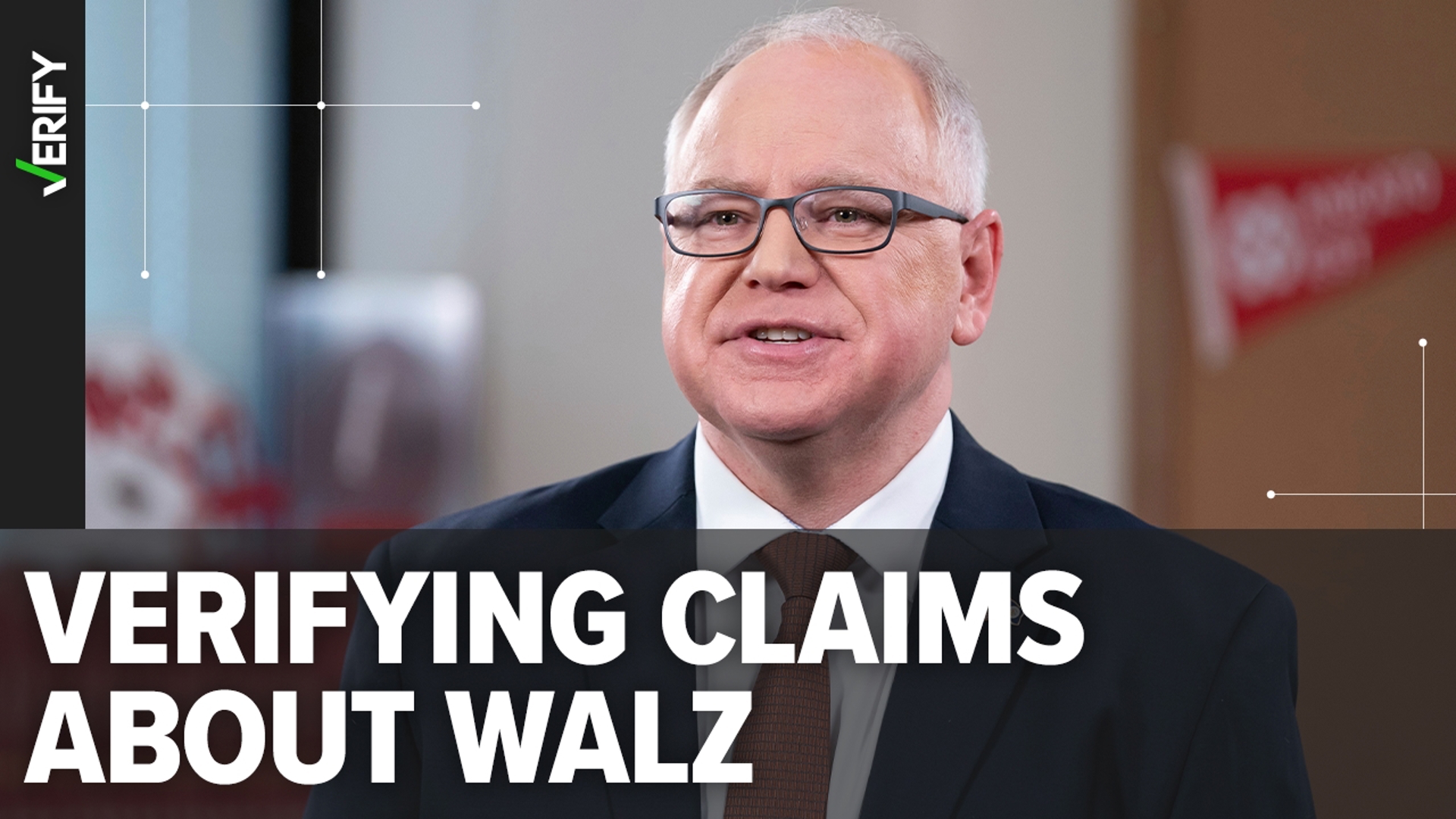Democratic presidential nominee Vice President Kamala Harris picked Minnesota Gov. Tim Walz to be her running mate on Aug. 6.
Former president and Republican presidential nominee Donald Trump mentioned Walz during a rally in St. Cloud, Minnesota, on July 27. At the 29-minute mark of this livestream from the rally, he talks about how Walz handled the unrest that followed the murder of George Floyd by a Minneapolis police officer in May 2020. Trump claimed he deployed the National Guard to protests after Floyd’s murder, rather than Walz.
“Immediately every voter in Minnesota needs to know that when the violent mobs of anarchists and looters and Marxists came to burn down Minneapolis four years ago, remember me?” Trump says to the crowd. “I couldn’t get your governor to act. He’s supposed to call in the National Guard or the Army and he didn’t do it … So I sent in the National Guard.”
THE QUESTION
Did Trump deploy the National Guard to Minneapolis in 2020?
THE SOURCES
- Minnesota Emergency Executive Order 20-64
- Minnesota National Guard
- Former President Donald Trump’s archived social media posts
- Minnesota law on peacetime emergency declarations
- U.S. Code §12406
THE ANSWER
No, Trump did not deploy the National Guard to Minneapolis in 2020. Minnesota Gov. Tim Walz ordered the troops to be deployed.
WHAT WE FOUND
Violent protests erupted in Minneapolis in the days after George Floyd’s murder in 2020. In response to the unrest, Gov. Tim Walz ordered the state’s National Guard to be deployed to Minneapolis and St. Paul. Despite his recent remarks on the campaign trail, former President Donald Trump did not deploy the National Guard to Minneapolis in 2020.
Floyd died while in police custody on May 25, 2020. Protests began in Minneapolis and St. Paul on May 26. On May 28, in response to the violent protests, Walz issued an emergency executive order activating the Minnesota National Guard, ordering the deployment of troops to Minneapolis and St. Paul.
The executive order also served as a peacetime emergency declaration for both cities. A peacetime emergency declaration can be declared by the governor in certain circumstances, including civil disturbance, when local government resources are inadequate to handle the situation, U.S. law says.
On May 28, 2020, the Minnesota National Guard said on social media that the request came from Walz.
Minnesota National Guard Maj. Gen. Jon Jensen said, “We are ready and prepared to answer the Governor's request. We are currently in process of assigning and preparing units to respond.”
Also on May 28, the Minnesota National Guard posted, “We have activated more than 500 soldiers to St. Paul, Minneapolis and surrounding communities. Our mission is to protect life, preserve property and the right to peacefully demonstrate. A key objective is to ensure fire departments are able to respond to calls.”
It wasn’t until after that deployment that Trump took to social media on May 29 threatening to send in the National Guard if Democratic Minneapolis Mayor Jacob Frey did not “get his act together and bring the City under control.” But at that point, the National Guard had already been deployed per Walz’s request.
On May 29, 2020, following his initial tweet about Frey, Trump wrote on X, formerly known as Twitter, that he talked to Walz and “told him that the Military is with him all the way.”
State national guards are usually commanded by the governor, though a president does have the power to deploy a state’s National Guard in certain circumstances.
None of Trump’s archived social media posts from the first week of the protests in Minneapolis or St. Paul say he made the call to deploy the National Guard, nor do reports from the time say he made the decision to deploy the National Guard.

